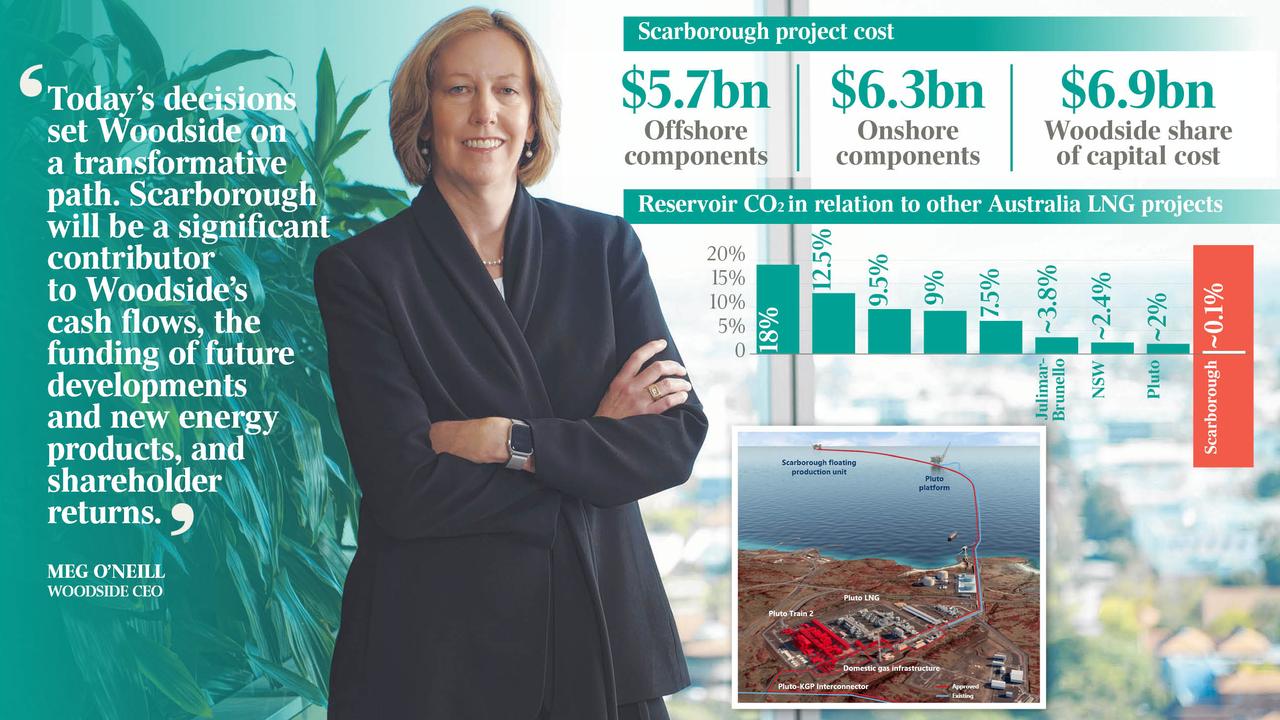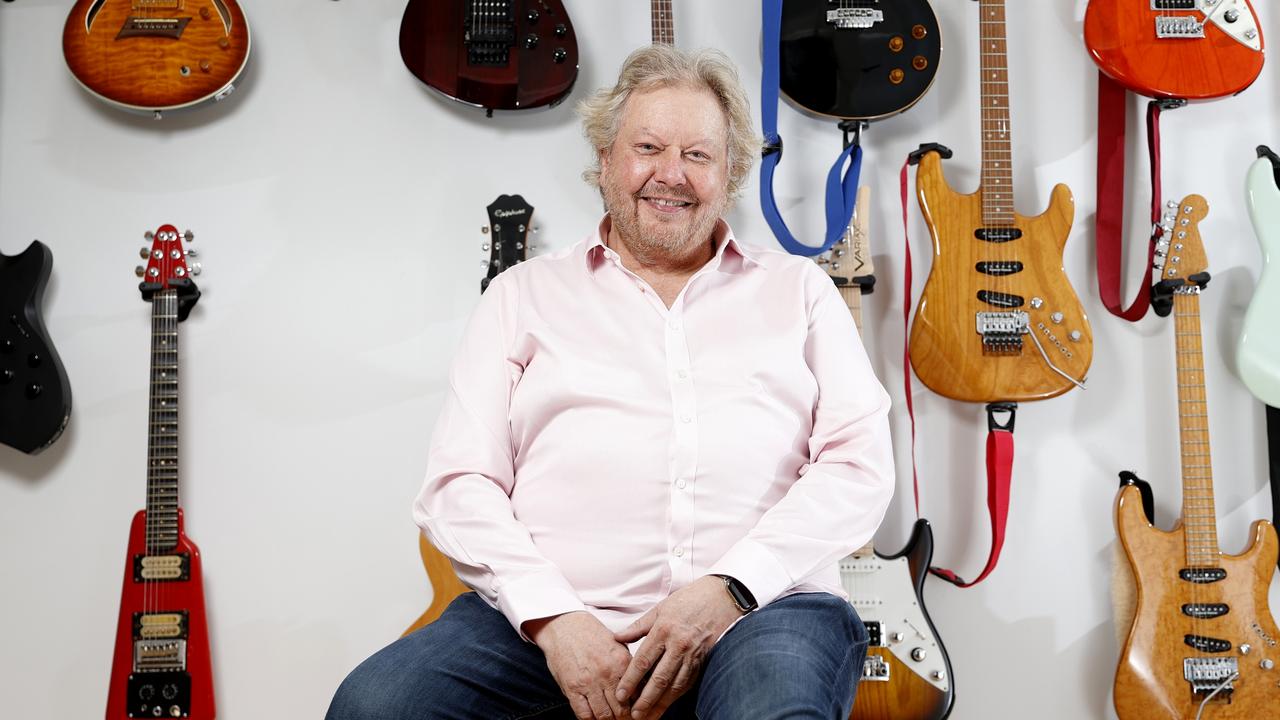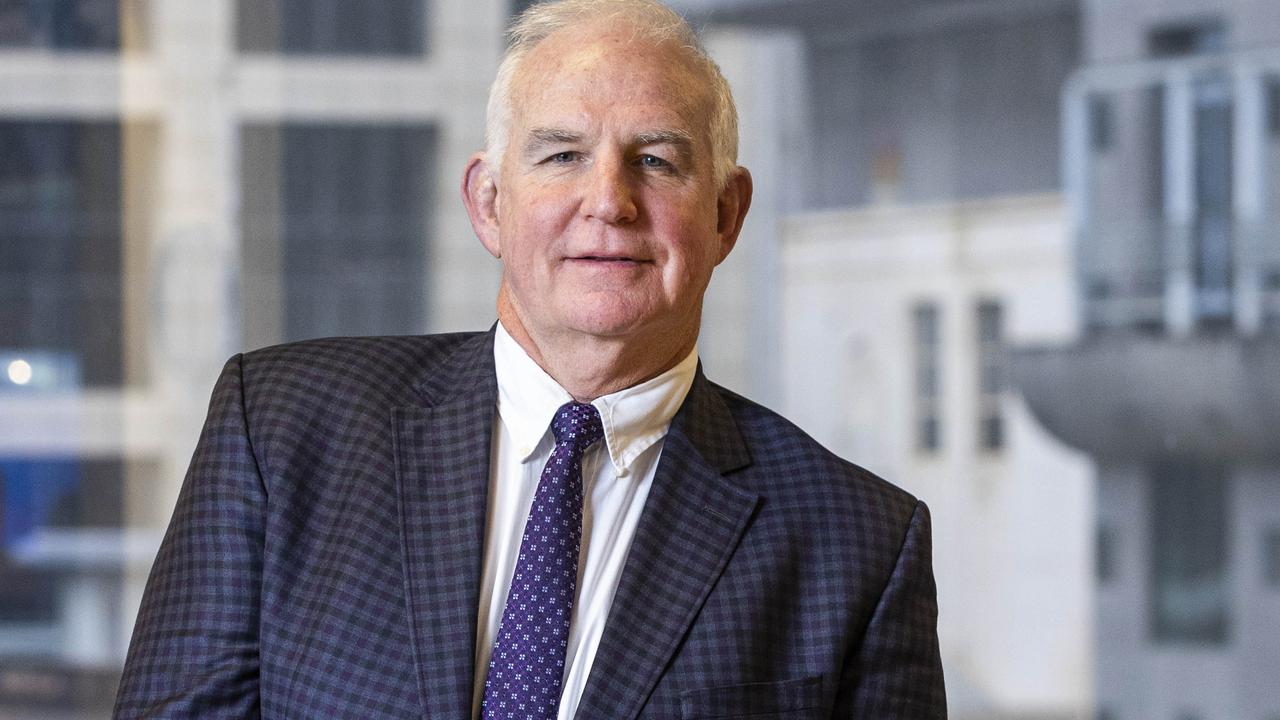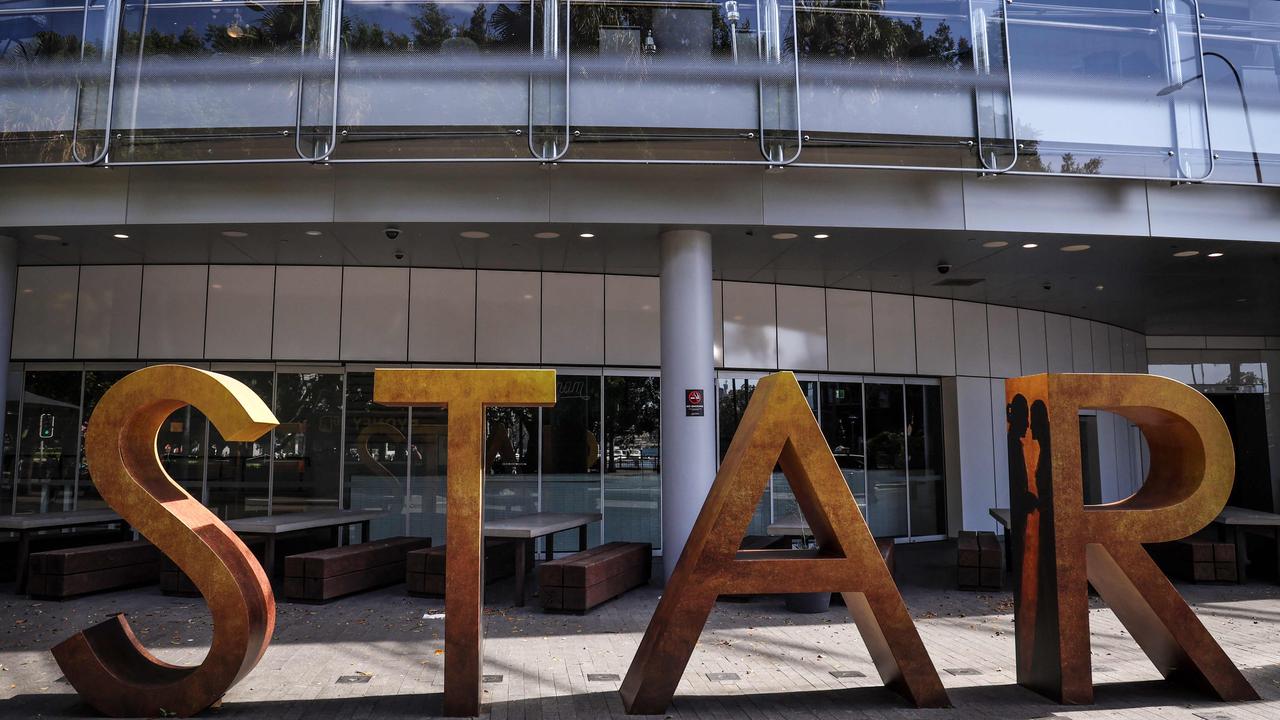Woodside-BHP agree $40bn merger and giant Scarborough gas deal in WA
Woodside Petroleum has agreed a $40bn merger with BHP Petroleum and will proceed with its giant Scarborough gas project off the coast of Western Australia.

Business
Don't miss out on the headlines from Business. Followed categories will be added to My News.
Woodside Petroleum chief executive Meg O’Neill has hailed a $40bn merger with BHP Petroleum and the green light for a giant gas project off the West Australian shore as the most significant day in its 67-year corporate history, with the deals catapulting the Australian company into a top 10 global oil and gas producer.
The two resources giants agreed to stick with the original terms of the merger, first announced in August, with Woodside to own 52 per cent of the combined group to BHP’s 48 per cent and the merged company boasting a market value of more than $40bn on current prices.
The duo also approved the $US12bn ($16.5bn) Scarborough and Pluto-2 projects, Australia’s biggest gas development in a decade, in a move that immediately stoked protests by angry climate campaigners and came a year after it was forced to delay the facility due to rock-bottom oil prices.
“Thinking back over our history, I’m not sure there’s another day that competes in the 67 years that we have been around,” Ms O’Neill told The Australian on Monday. “We’re absolutely over the moon about the merger opportunity. It makes us a top 10 independent energy company, a top 10 LNG producer and with tremendous geographic diversity. With the BHP business coming across with no debt, we’ll have the balance sheet, the cash flow and the financial strength to fund developments now and into the future.”
The merger will spark a major geographic shift for Woodside, which will see it operate on multiple continents with assets spread across Australia, the Gulf of Mexico and Trinidad. It will double its production and also lift its share of the North West Shelf, Australia’s biggest LNG plant.
Australia’s energy sector is undergoing its most profound restructuring in a generation as companies look to bulk up through consolidation after last year’s pandemic-sparked oil price rout, with Santos and Oil Search locked into a $21bn merger, the biggest local move as part of a global deal spree.
A week after striking a deal with GIP for its $7.6bn expansion of the Pluto LNG plant near Karratha that will process gas from the Scarborough field, Woodside said Scarborough would have a rate of return of more than 13.5 per cent and a payback period of six years.
Sanctioning Scarborough and Pluto-2 would create more than 3200 local construction jobs, WA Premier Mark McGowan said, with 600 roles ongoing.
However, spiralling costs may place pressure on the budget for development. BHP will tip in $US1.5bn of investment for development of the giant offshore field, with Woodside taking on costs of $US6.9bn.

Woodside is targeting first supplies in 2026 and has spruiked it as one of the lowest carbon-intensity sources of LNG for North Asian consumers.
Still, critics slammed its decision to sanction Scarborough given urgent concerns over cutting emissions to meet climate change goals.
“Woodside has declared war on the climate by reaching a final investment decision on the single largest fossil fuel project in Australia in recent memory,” Australasian Centre for Corporate Responsibility climate director Dan Gocher said.
“Post-COP26, activists committed to a safe climate will only become more determined.”
However, Ms O’Neill said the gas project was urgently needed to meet demand, noting an energy crunch in the last few months that swept Europe and parts of Asia.
“You look at what‘s happening in the marketplace today – and I know it’s a short-term phenomenon – but one of the signals or takeaways we get from it is that the world needs gas. And when we look at the forecasts for where the world‘s energy market is headed, LNG is going to be an even bigger part of meeting the world’s energy needs.”
Sanctioning the deal marked a major milestone, after years of commercial ructions and doubts over whether the development would proceed, Credit Suisse said. Woodside’s chief financial officer quit midway through its merger with BHP Petroleum amid a broader move by Ms O’Neill to restructure the company.
“Woodside’s Scarborough fair has finally arrived, after a five-year slog through painful commercial negotiations and turbulent market conditions,” Credit Suisse analyst Saul Kavonic said. “The announcement confirms that the Scarborough economics have improved for Woodside in the wake of its infrastructure selldown, and the economics remain competitive even under more conservative BHP resource assumptions and without any additional midstream and Train 1 value that Woodside should be able to extract.”
Woodside shareholders will vote on the merger deal in the second quarter of 2022, with a 50 per cent vote required. Ms O’Neill said support had been strong in the lead-up to Monday’s deal signing with BHP, released after the sharemarket had closed.
“It has been extremely positive,” the Woodside chief said.
“So our investors absolutely understand the strategic rationale behind the merger and why we’re pursuing that opportunity. They also understand the attractiveness of Scarborough, the materiality of the investment in this field and the opportunity that it means in terms of the cash flow it will generate for decades to come.”
BHP chief executive Mike Henry said it considered a demerger of its petroleum business but decided the merger would create more value for its shareholders.
Woodside shares closed down 1.9 per cent at $21.70 while BHP rose 0.4 per cent to $36.58.
Originally published as Woodside-BHP agree $40bn merger and giant Scarborough gas deal in WA









